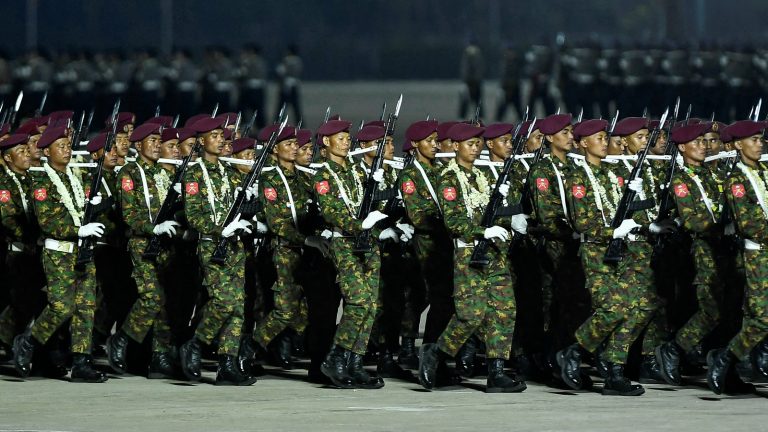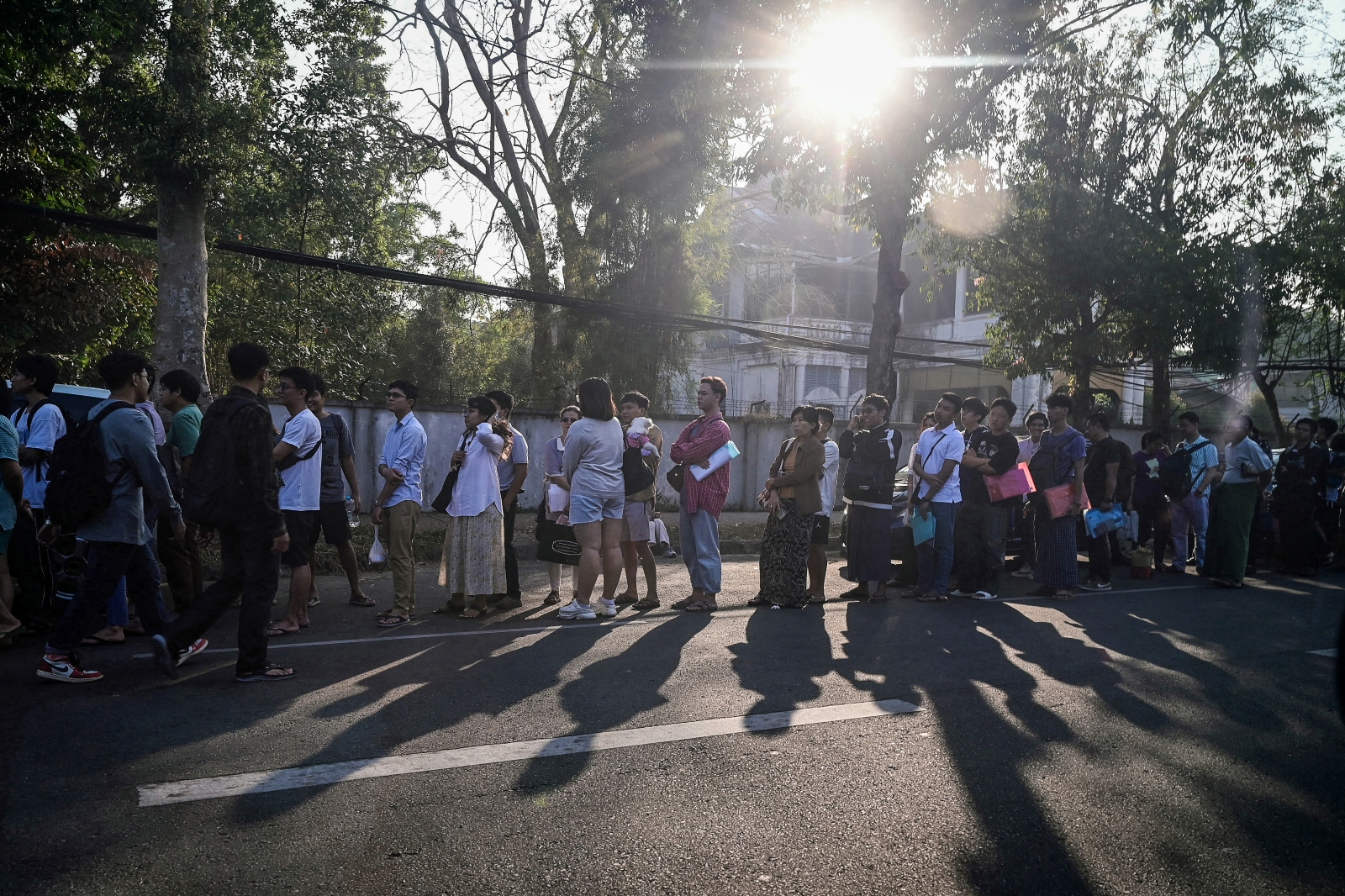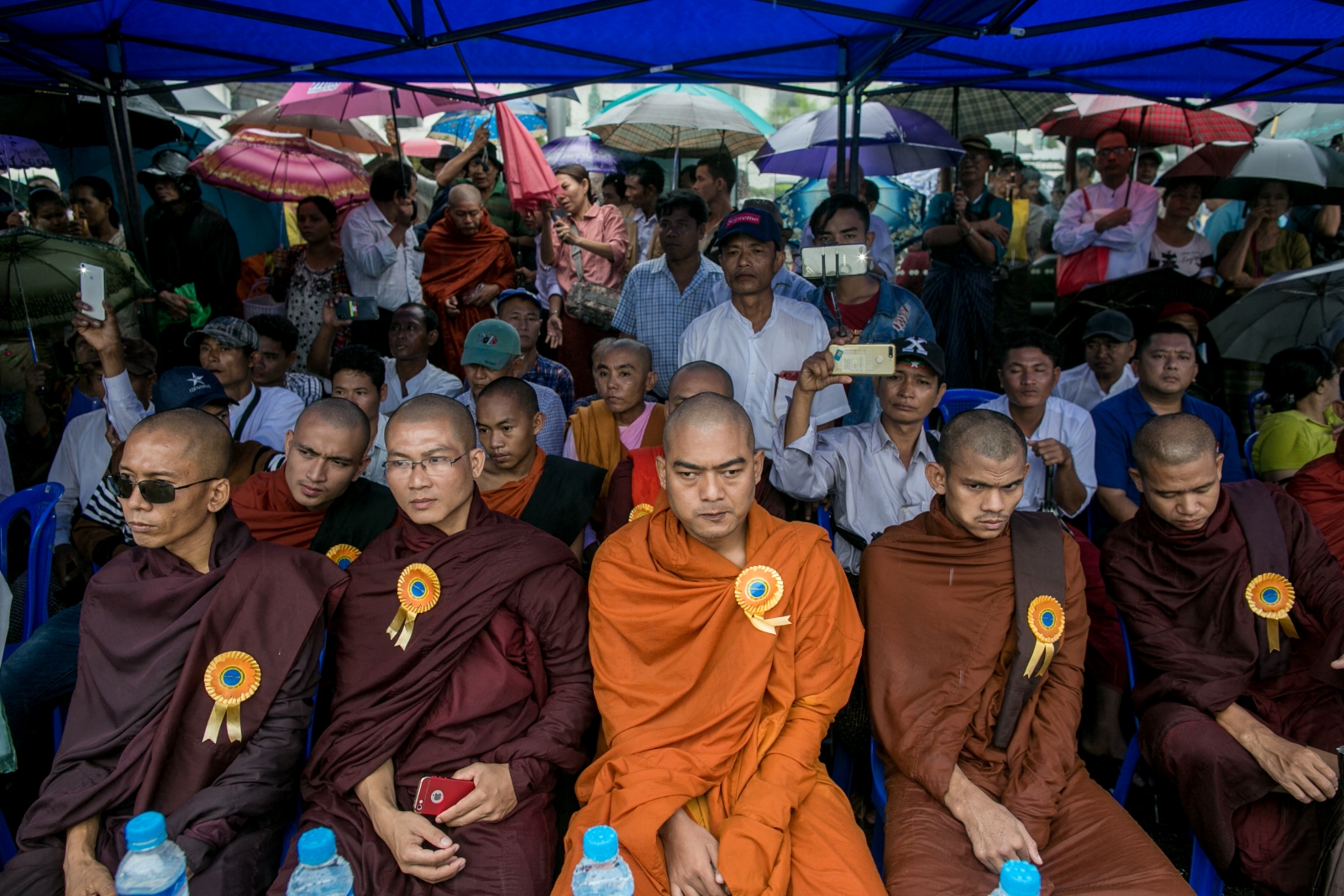Whoever emerges as the front-runner for the highest o ce after the elections will have the Tatmadaw’s support.
With Myanmar’s general election only three months away, it remains clear that the military is playing a central role in the selection of the next president and will be a strong influence in any government that emerges after the vote. President U Thein Sein has said he would be willing to serve a second term in office, but he will only do that with the blessing of Tatmadaw Commander-in-Chief Senior General Min Aung Hlaing.
On the face of it, the battle seems to be within the USDP – between President U Thein Sein and Parliament Speaker Thura U Shwe Mann. In recent weeks, as their skirmishing has become more bitter and acrimonious, the Tatmadaw seems to have intervened on the side of U Thein Sein.
Although the root of the conflict is the battle for the party’s presidential nomination, it is increasingly focused on the role of the army and its future in politics. Thura U Shwe Mann has taken several swipes at the military in parliament in recent months, causing it to take offence. But it has been his blocking of retiring senior officers’ admission to the USDP that has precipitated the recent showdown.
As part of the annual military reshuffle at this time of the year, about 200 senior officers have left the Tatmadaw recently or are retiring in the coming weeks, including the three Tatmadaw ministers – for Defence, Home Affairs, and Border Affairs. Senior General Min Aung Hlaing is also expected to retire in the coming months, though he has publicly side-stepped the issue.
In the past, these military officers would automatically have joined the USDP – as did most of the junta’s ministers before the 2010 election, including U Thein Sein and Thura U Shwe Mann.
Support more independent journalism like this. Sign up to be a Frontier member.
Naturally, this batch of officers expected to join the USDP and become election candidates, some with the expectation of becoming ministers in the next Union government or being chief ministers of states and regions. But only about 50 were welcomed into the party, say sources close to the army.
Fearing he would lose control of the USDP, of which he is chairman, Thura U Shwe Mann has blocked most of them from joining the party and entering politics under its flag.
Despite the struggle within the party, it is the army that will have the decisive influence. The 25 percent of seats in parliament guaranteed to military appointees under the 2008 Constitution give the Tatmadaw an effective veto over charter reform.
After the new parliament convenes next year, the unelected military MPs will nominate a vice-presidential candidate, as will the Upper House and the Lower House. A joint sitting of parliament then elects the president from among the three candidates, in a vote in which the military bloc may be decisive.
It seems the army is orchestrating the current moves against the Speaker, whose constituency in Nay Pyi Taw includes many Tatmadaw members and their families. The army is behind the move to unseat Thura U Shwe Mann using a section of the Constitution that allows one percent of the voters in a constituency to seek the recall of their MP.
They accuse him of abusing his position as Speaker and offending the Tatmadaw by allowing a vote during a debate on charter reform in June that – had it passed – would have weakened the military MPs’ effective veto on the Constitution.
If Senior General Min Aung Hlaing retires and enters politics he will be succeeded by the Tatmadaw second-in-command, General Soe Win, who may be more accommodating than his predecessor. He will nominate the military MPs and appoint the ministers of Defence, Home Affairs, and Border Affairs.
One of his main concerns will also be to have former officers under his command appointed as Union government ministers and chief ministers in the states and regions: only a presidential candidate who understands and accepts the military’s leading role will get its support.






